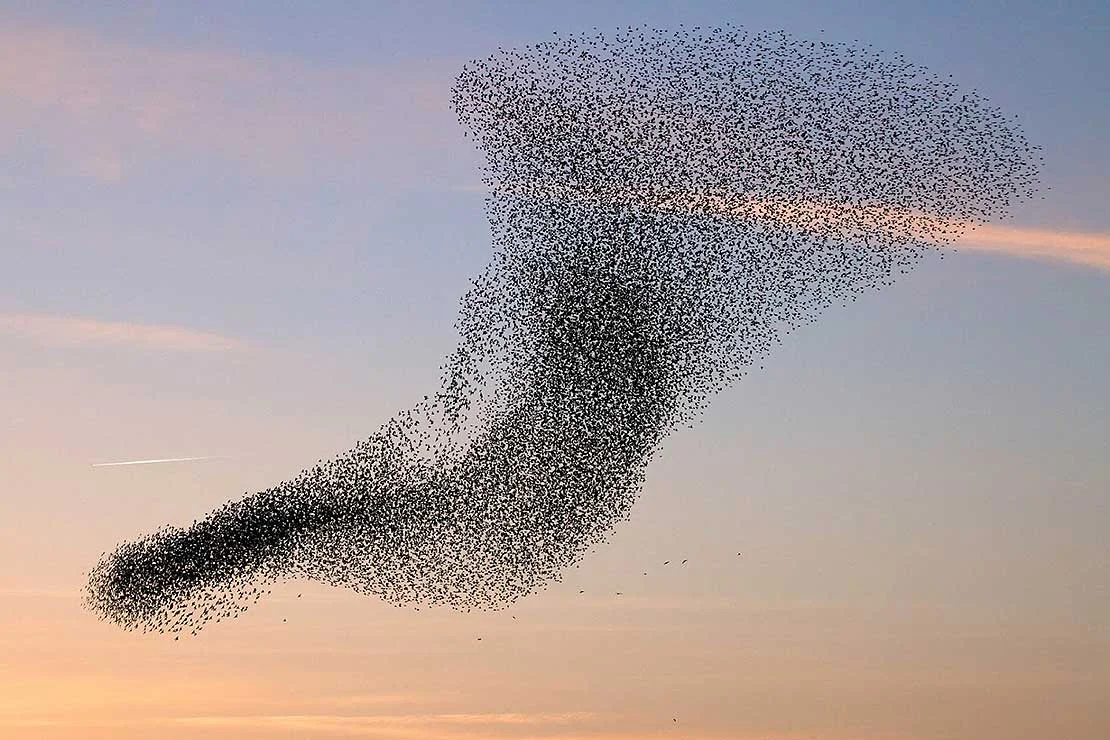There’s two things that set the present age we live in apart from the past:
- We use internet-connected computers and little devices we carry in our pockets that allow us to communicate with anyone else in the world instantly. Never before in human history have we ever had anything remotely close to this level of global communication and information sharing.
- The second thing isn’t as obvious, because we have little contrast to see outside of what we’ve always known, but I know many people who can relate: it’s, ironically, a lack of community.
Though we live in an information age where we can all potentially connect, for the most part, people stick to their close circles and don’t much venture outside of them.

In the past, there was only one circle we really knew: our tribe. We were automatically a part of our tribal community, because it was how we survived. In these tribes, everyone had roles, such as hunter, gatherer, warrior, or crafter. Everyone in the tribe directly depended on the others in some way, so there was an inherent closeness between all community members. There was usually a chief at the head of the tribe who united everyone in their actions, and at the heart was the shaman who united everyone more personally and spiritually. It was simple. Periodically, we would even gather together for ceremonies where we communicated as a whole on matters that affected the entire tribe, performed ceremonies together, or we simply danced and celebrated together.
As time went on, communities thrived more and more, and with their success, they grew in size. Cities and kingdoms became the new form of community and with it we required a new kind of community governance. Since communications technologies like cell phones did not exist, communication became slow and inefficient, and so the masses depended on their leaders to manage our civilizations. At best, the masses could at least elect those who rose to power over their civilizations and have some semblance of influence in the world we live in. This, the last few millennia, was the age of governments, and with it, less and less influence was given to the average citizen over the collective at large.
Today, you might say this disconnect is greater than ever. The left hand has no idea what the right hand is doing; and our collective head and heart seem to be at odds with each other. People are treated more as commodities of their community rather than the community being a product of what we create together.

With the advent of the internet, humanity gained a tool that finally allowed us to communicate instantly, bringing us much closer in some ways, but further isolating us in other ways.
We have websites like Wikipedia and Reddit where internet communities can work together to share information in revolutionary ways. We have social media platforms where people can share what they are doing in revolutionary ways. When it comes to information, we are far, far beyond where we used to be. But when it comes to helping our neighbor, whether they are right next door, or bordering our country, in many places, we don’t even know their names and we might even see them as a threat.
The reason is because we don’t really need our neighbors like we used to. Before, we needed our community to survive, but now survival is individualized. Each family is in its own little kingdom we call a house, and each house has its own resource streams going into it: electricity, phone, water, food, gas, internet, waste disposal, and so on. It sounds great, because on one hand it allows us to have all these resources to manage our kingdom however we want, but on the other hand, it comes at a great cost, a financial cost, that makes us depend on money and actually takes away our freedom and makes most people dependent on institutionalized communities to pay for their kingdoms.
It’s money that really messes the whole human community thing up. It keeps us in survival mode. It makes us competitive. Even though we’re thousands of years into the future, we are still struggling for survival, and though we have far more resources and information at our disposal, we have lost our sense of community.
But is the solution not obvious? Let’s list out the facts:
- Internet communities work well together sharing information on the internet (so well!)
- We work well together when we are a paid employee of an organization (though our hearts aren’t always in it, since it’s often just for the money)
- We work well together when we are fighting for a cause we believe in, such as for our country or for a basketball game
If we can do all of that, then why couldn’t we work well together providing shelter for the homeless, food for the hungry, and money for everyone in poverty? Why are these ongoing problems? Is it because everyone is in their own isolated bubbles? Is it because everyone is glued to their phones instead of looking at the world around them?
Well, the internet doesn’t seem to be going anywhere and trying to get people off their phones seems like a futile endeavor. If you can’t fight them, join them.
The obvious solution is to create internet tools for community in the physical world just as we have done in the information world. The solution is to make the internet more human.
It doesn’t mean we should make more ways to ask people for handouts with donation platforms, because this still doesn’t solve the human disconnection problem. Instead, we should create solutions for financial burdens altogether. Anywhere people are struggling, there is a human solution to a human problem.
We can access plenty of information about celebrities, news, movie release dates, history, the answers to math problems, and the time of our commute, but what about information about how my neighbor is doing or what they are skilled at? What about information about where the apples come from at the store? Why not make ways to connect suppliers directly with consumers? Why are we not innovating ways to solve problems on a collective scale?
We create lots of solutions that benefit corporations on a large scale, but very few that benefit humans on a large scale. It’s up to us, the people, to begin creating this change for ourselves.
Internect’s mission is to innovate completely new ways of using the internet that increase human connection, internet community, and prosperity. Our flagship project is to build a platform in which communities of any size can collaborate, make decisions together, and help each other easily. We know it’s about more than giving people a forum to talk in. We’ve been there and done that. We need tools that allow us to interact together better.
You can learn more about the importance of this project for humanity here. If you feel it’s important too, you can help us by making a donation, subscribing to our newsletter (you can sign up below), or sharing our website and posts. We appreciate your support and look forward to seeing what people create on the all-in-one community platform coming soon!

